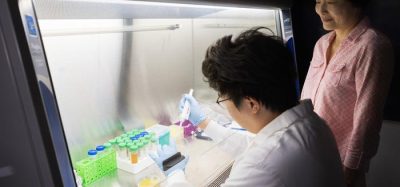Sustainability – a discussion with Dr Gavin Milligan
- Like
- Digg
- Del
- Tumblr
- VKontakte
- Buffer
- Love This
- Odnoklassniki
- Meneame
- Blogger
- Amazon
- Yahoo Mail
- Gmail
- AOL
- Newsvine
- HackerNews
- Evernote
- MySpace
- Mail.ru
- Viadeo
- Line
- Comments
- Yummly
- SMS
- Viber
- Telegram
- Subscribe
- Skype
- Facebook Messenger
- Kakao
- LiveJournal
- Yammer
- Edgar
- Fintel
- Mix
- Instapaper
- Copy Link
Posted: 2 December 2019 | Gavin Milligan | 1 comment
Ahead of Food Integrity 2020, New Food spoke to Dr Gavin Milligan about how innovative new products, lifestyle changes and better-quality information can all contribute to meeting sustainability goals.


With New Food’s Food Fraud event evolving into Food Integrity 2020 to encompass the latest challenges and innovations affecting the industry, we explore some of the toughest questions we are currently facing, with leaders from the food and beverage sector coming together to debate, discuss and share their experiences and solutions in this two-day event.
One of those big challenges is sustainability; some changes to achieve sustainability goals will not please everyone, so how can companies navigate this slippery concept? We spoke to Dr Gavin Milligan about how companies in the food and beverage sector can use a mix of initiatives to positively impact climate change.
“I’m looking forward to contributing to one of the panel sessions at next year’s Food Integrity conference, joining other contributors in discussing the concept of ‘Driving Towards a Sustainable Future for Food’. Never have the stakes been higher but there is some room for hope as, equally, perhaps awareness and concern among citizens have never been higher,” Milligan told us. “A recent survey by Survation found that nearly two-thirds of respondents thought the UK’s net-zero target should be brought forward from 2050.
“Sustainability overall, though, is a slippery concept containing, as it does, so many varied strands. The United Nations’ Sustainable Development Goals summarise the concept under 17 headings, and even within those 17 there are evident interdependencies and tensions. At the next level of granularity, it becomes yet more complex with 169 individual targets and still more indicators. So, when we talk about sustainability, we need to be clear what is being sustained and for whose benefit. More importantly perhaps, we need to be just as clear about what is not being sustained.”
Achieving sustainability can be tricky to navigate; a positive move towards sustainability could result in a negative in another area…
“Anyone who works in the field knows all too well that it involves compromises and can involve some difficult decisions,” he said. “All the more difficult when those decisions prioritise environmental over social outcomes, or vice-versa. Although the gilets jaunes protests in France subsequently became far more complex, they started out as a response to increased fuel duties which, on the face of it, had the laudable policy aim of reducing emissions. That environmental positive was felt by those who had to bear the brunt of increased fuel prices as not making up for the social and economic negatives of reduced and/or more expensive mobility.
“Closer to the food sector, the focus on reducing consumption of dairy products and red meat have, perhaps unsurprisingly, met a less than positive response from those whose livelihoods depend upon such products. The report published in May 2019 by the UK’s Committee on Climate Change looking at how to achieve net-zero emissions by 2050 included this dietary change, along with associated land-use change, among its many recommendations. Quite how to deliver the ‘just transition’ that the report also highlights as being a necessary part of moving to a net-zero economy remains, for now, an unanswered question.”
The environmental impact of the food and beverage sector
“The word carbon, in agriculture and elsewhere, is often used as a shorthand for all emissions types, most important of which in the agri-food system are not directly associated with carbon dioxide from energy consumption,” Milligan explained. “Methane from ruminants and nitrous oxide from soil disturbance and fertiliser breakdown are typically far more significant in their climate impact than carbon dioxide from electricity, gas and diesel because these gases are far more potent in their atmospheric heating impact than is carbon dioxide. Across the whole supply chain, figures from CDP (formerly the Carbon Disclosure Project) show that factory emissions are dwarfed by up- and downstream emissions with a factor of nearly six times the impact from the latter.”
So what can companies do to positively impact sustainability goals? “Better animal health and optimised diets can help reduce methane, and precision application of fertiliser and reduced tillage both help with nitrogen management,” Milligan said. “Perhaps unintuitively, however, the most significant lever in the agri-food system is reduction of food waste. Globally, around one-third of food produced for human consumption doesn’t make into people’s stomachs with all the wasted resource that entails.
“Worse still, if the uneaten product is allowed to decompose, it can release methane. Figures published by WRAP show that if food waste were a country, the associated emissions would rank third globally, behind only China and the US.”
Engaging consumers on climate change
The topic of sustainability is becoming more wide-spread thanks to, in part, high media coverage and it’s important to involve consumers to continue this momentum and create real change.
“Clarity around definitions and robust metrics are key to any system which seeks to justify claims of ‘sustainability’ associated with food products or, indeed, any other sector,” Milligan said. “Consumer research work by Nielsen and others shows that there is a general desire to consume more sustainably, something of an oxymoron in itself perhaps, but shoppers often feel overwhelmed or powerless in the face of a complex global system. That goes some way to explain the response to single-use plastics, and plastic in general, since the screening of Blue Planet 2; we can all see and feel plastic packaging in use and in our kitchen bins.
“There is something of the same in the renewed attention to the climate emergency; even if the school climate strikes inspired by Greta Thunberg and the street protests of Extinction Rebellion still engage only a minority of citizens, the numbers and the political impact are still far ahead of where they were only two years ago. If we can find ways to generate the same sense of agency around other environmental and social issues, there is an opportunity to engage people more effectively with sustainable lifestyles. This is not just a question of product design and reliable measurements; social sciences have a part to play too. An important first step is in developing trust in message, which requires trust in the messenger.”
Plant-based diets and alternative proteins
Climate change isn’t the only topic that’s had a lot of media coverage recently. Thanks to celebrity endorsements, vegan and plant-based diets have also been in the spotlight.
“Plant-based diets have received significant media attention and have been the focus of much new product activity over the past year and beyond. High-profile celebrities such as F1’s Lewis Hamilton have invested in vegan foods which has helped make meat-free diets far less niche than was once the case,” Milligan told us. “Wasted vegan food can result in energy inefficiency and methane emissions as do other categories, of course, so it is not a silver bullet (few things are) but it is a component in the answer. The emergence of alternative proteins within the meat-free category is also a component, but one that doesn’t meet with universal acceptance.
“Going back to the point with which I started this article, any individual response to the sustainability challenge is unlikely to appeal to all consumers so we need a mix of initiatives within which everyone can find the balance of trade-off and compromise which works for them.
“Changed farming systems, innovative new products, lifestyle changes and better-quality information all have a part to play in addressing the existential threat to human society posed by the risk of climate breakdown. The fact that there is no single easy answer shouldn’t stop us all, as individuals or as businesses, from contributing our own piece of the jigsaw of change that is needed.”


For further information and to book your tickets for Food Integrity, please click here.
Biography
Gavin Milligan holds a PhD from the University of London and worked in the chemical industry before moving to the food sector. He has worked for a number of businesses from SMEs to blue chip corporates in supply chain, operations and commercial roles and is currently ESG Director for the William Jackson Food Group where he oversees the company’s social and environmental programmes. He is a member director of Sedex, sits on the Management Committee of BBNet and is a member of the Food Knowledge Transfer Network, which he represents on the European Food Technology Platform. He sits on the Industrial Advisory Boards at Sheffield Hallam University’s centre for excellence in food engineering and Lincoln University’s MSc programme in agri-food technology and on the Commercial Advisory Board of the Industrial Biotechnology and Innovation Centre in Glasgow. He also runs his own business, Green Knight Sustainability Consulting, specialising in developing social and environmental strategies for agri-food and allied businesses.
Related topics
Environment, Food Safety, Food Waste, Plant based, Supply chain, The consumer










Gavin, I agree and thank you! It is time to move from the oxymoron of Sustainable Development that was created for the retention of neoliberal economics. I prefer ‘sustainable living’ or ‘capable futures’. And in addition to the climate emergency, we must not forget biodiversity extinction – together they represent whole systems ecological collapse. Yes, the subject is complex, but it is made complicated by the industries that profit from branding human beings as ‘consumers’. The crises are ours to change. All the best. David